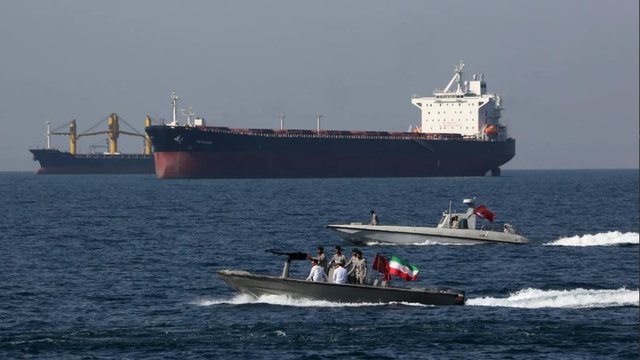
Closing the Strait of Hormuz/ The 'apocalyptic' scenario for the oil market


Iran has officially threatened to close the Strait of Hormuz, while attacks and tensions with Israel only increase and the world in the Middle East is seeing one of the most severe escalations in modern history.
As tensions rise following Israeli attacks on Iran and its response, fears have resurfaced that Tehran could retaliate by targeting one of the world's most vital oil arteries - the Strait of Hormuz.
The Strait of Hormuz, which connects the Persian Gulf to the Arabian Sea, carries about 20 million barrels of oil and petroleum products a day, accounting for nearly a fifth of global oil shipments. Any move to block it would affect energy markets.
However, market observers believe that a full-scale disruption of global oil flows by closing the waterway is unlikely, and may even be physically impossible.
There is really “no net benefit” to blocking oil from passing through the Strait of Hormuz, especially given that Iranian oil infrastructure is not directly targeted, said Ellen Wald, president of Transversal Consulting. She added that any such action would likely provoke further retaliation.
She also warned that any major increase in oil prices caused by a shutdown could trigger a backlash from Iran's largest oil customer: China. "China doesn't want the flow of oil from the Persian Gulf to be cut off in any way, and China doesn't want the price of oil to go up. So they're going to bring the full weight of their economic power to bear on Iran," Wald explained.
China is the number one importer of Iranian oil, reportedly accounting for over three-quarters of its oil exports. The world's second-largest economy is also Iran's largest trading partner.
“Their friends will suffer more than their enemies… So it’s very difficult to predict that this will happen,” said Anas Alhajji, managing partner at Energy Outlook Advisors, adding that cutting off the canal could be more of a disaster than a boon for Tehran, given that most of Iran’s daily consumer goods come through that route.
"It is not in their interest to cause problems because they will suffer first."
Iran threatened to close the Strait of Hormuz in 2018 as tensions rose following the US withdrawal from the nuclear deal and the reimposition of sanctions. Before that, another major threat reportedly came in 2011 and 2012, when Iranian officials, including then-Vice President Mohammad-Reza Rahimi, warned of a possible closure if the West imposed further sanctions on oil exports over its nuclear program.
Is it impossible to close the strait?
The Strait of Hormuz, which is 55 to 95 kilometers wide, connects the Persian Gulf and the Arabian Sea.
The idea of closing the Strait of Hormuz has been a recurring rhetorical device but has never been implemented, with analysts saying it is simply not possible.
"Let's be realistic about the Strait of Hormuz. First of all, most of it is in Oman, not in Iran. Second, it is wide enough that the Iranians cannot close it," Alhajji said.
Similarly, Wald of Transversal Consulting noted that although many ships pass through Iranian waters, ships can still take alternative routes through the United Arab Emirates and Oman.
“Any blockade of the Strait of Hormuz would be a ‘last resort’ option for Iran and would likely depend on a military engagement between the US and Iran,” said Vivek Dhar, director of mining and energy commodities research at the Commonwealth Bank of Australia.
Helima Croft of RBC Capital Markets suggested that while there could be some disruptions, a full-scale blockade was unlikely.
“We understand that it would be extremely difficult for Iran to close the strait for an extended period given the presence of the US Fifth Fleet in Bahrain. However, Iran could still launch attacks on tankers and mine the strait to disrupt maritime traffic,” said Croft, head of global commodities strategy and MENA research at RBC.
US President Donald Trump has warned of possible military action if negotiations with Iran over its nuclear program fail, but it is uncertain whether these threats are intended to increase the risks of US-Iran talks or simply increase pressure at the negotiating table, Dhar said.
Israel carried out a wave of airstrikes on Iran early Friday morning local time, claiming the attacks were aimed at facilities linked to Tehran's nuclear program.
Happening now...

83 mandates are not immunity for Rama's friends
ideas
top
Alfa recipes
TRENDING 
services
- POLICE129
- STREET POLICE126
- AMBULANCE112
- FIREFIGHTER128





























